Matt Mikalatos, author of the recently released The Crescent Stone, shares about the power of fiction in this feature for Relz Reviewz. Enjoy the insights from Matt and share your thoughts – whether as a reader or a writer – how fiction has reached you! Be sure to read all the way to the end to learn about Matt’s intriguing fantasy novel and enter the giveaway, courtesy of Tyndale House Publishers.
Over to you, Matt!
*****
Think of your reader as a walled city. Inside the walls are their thoughts, feelings, hopes, and insights. They have built up a lot of defenses to prevent random people from accessing those things. They want to control what comes in and out of their city. As writers we want to access that city because we want to transform it in some way. We get to choose between using a battering ram or a Trojan Horse. A battering ram is brute force: facts, figures, charts, logic, and so on. The battering ram gains entrance by overwhelming the reader’s defenses. Fiction, on the other hand, is a Trojan Horse. The reader allows a story past the defenses because of his or her desire to receive a gift—entertainment. Then we effect change from the inside.
So let’s talk about seven ways fiction can break through those walls:
- Fiction accesses the emotions rather than the intellect.
Many of us see the world and make decisions based largely on emotional criteria (even when we think we aren’t). Stories speak to emotion. That’s why when someone trots out all the statistics about, say, immigration, one side will respond by telling a beautiful story about an immigrant who came to the U.S. and escaped terrible suffering, and the other side will tell the story of an irresponsible immigrant who killed someone in a drunk-driving accident. Story connects us to raw, powerful emotions that can sweep right over the facts and take us to conclusions in opposition to them.
- Story creates empathy and compassion for others.
You don’t have to know a single person from Africa, or have ever been to Africa, to read and be moved by Chigozie Obioma’s The Fishermen. But you can learn about his world, about growing up in poverty and political unrest, without leaving your living room. Stories teach us about our differences, yes, but also the universal reality of the human experience as people all made in the image of God.
- In fiction, the reader constructs their own arguments to make sense of the events.
A well-written story may leave the reader to piece together what happened and why, and what led to that result—a lot like real life. A classic example of this is the story “The Lady, or the Tiger?” by Frank R. Stockton. In the story, we’re told that a princess looks down on her beloved in the arena, and there are two doors: behind one is a beautiful woman who her beloved will marry (and not be with her), and behind the other is a man-eating (literally) tiger. The princess knows what is behind each door, but her lover does not. She points to a door, telling him to open it. The question posed to the reader is, “What lies beyond that door?” The story doesn’t tell us, but I’ve sat in classes where readers passionately defend the “real” ending to one another. The human response to story is to make patterns, to create meaning.
- A good story can be revelatory to the reader . . . about the reader’s own heart.
I was reading a novel by Percival Everett (pretty sure it was Glyph). More than a third of the way into the book, the narrator reveals his ethnicity. In fact, he reveals it and then says, “I bet you thought I was white, didn’t you?” In fact, I had thought he was white. Because at that time, my assumption was that white was the “default.” It was a stunning moment—the author not only revealed something to me, but knew what my reaction was going to be. He had baked it into the center of the book. It—no exaggeration—changed my life.
We see the same thing being done in the story of the prophet Samuel going to David and telling him a story about an injustice (a rich man has stolen a poor man’s sheep). David is furious and demands justice—and Samuel says, simply, “You are that man.” Do you think the story might have been different if Samuel had walked in and said, “Let me lay out the facts. You slept with another man’s wife and then murdered him. Does that cover it?”
- Story can reveal a truth without ever stating it.
I love Les Miserables, which works on so many levels and has so many profound insights that it has become rightfully beloved worldwide. It’s a deeply Christian book about redemption that is celebrated by people of all faiths. A great example of story revealing truth without ever saying it is found in what Les Miserables teaches about prayer.
I may have missed one, but as far as I know, every single prayer uttered by a character in Les Miserables—prayers for protection, for justice, for provision—is answered, and often in miraculous, borderline-unbelievable ways.
- If story is so important, why are you writing an essay?
Once upon a time, there was a woman named Harriet Beecher Stowe. Distressed and angered by the political situation of her day, and particularly by the horrors of slavery, she began to write a story, which was serialized in a newspaper called The National Era. It was the story of a longsuffering Christian slave named Tom and the horrific abuses he experienced in slavery, which ended in his death. The story left no room for any conclusion other than this: Christianity was incompatible with owning slaves. When collected into a novel called Uncle Tom’s Cabin, Stowe’s book became the second bestselling book of the century (with the Bible in the #1 slot). Her book deeply impacted the people of the United States, to the point that when Abraham Lincoln met her during the Civil War, he called her “the little woman who wrote the book which caused this great war.” Her little story had literally changed the world.
- “The quote is apocryphal.”
It’s likely Abraham Lincoln never said those words to Harriet Beecher Stowe. It was first put down in print in 1896. Lincoln scholars think it may have been invented and then propagated by professors, authors, and other people who loved literature as a way to show the enduring power of fiction. And guess what? Here we are, 122 years later, still telling that story.
As for me, I wrote a story about a young woman named Madeline Oliver who has a fatal lung disease. Her friend Jason Wu has experienced a tragedy so deep that he has vowed never to tell a lie again. Together they are invited into a fantasy world called the Sunlit Lands, where they discover things about themselves and the world that would be impossible for them to learn another way. The novel, The Crescent Stone, deals with painful contemporary issues in our world without ever turning into an essay—but rather by connecting us with people we come to care about. I hope you enjoy it!
Thanks for sharing, Matt – readers and writers alike with find this both true and encouraging!
Now to Matt’s compelling fantasy, The Crescent Stone, the first in the Sunlit Lands series.
“For Narnia fans who enjoy heavy snark, this is a must-read.” ―Kirkus Reviews
“A compelling fantasy world with humor and heart.” ―Gene Luen Yang, author of American Born Chinese and Boxers & Saints
“With the rich characterization of John Green and the magical escapism of Narnia, this book is a must read for all fantasy fans!” ―Lorie Langdon, author of Olivia Twist and the Doon series
A girl with a deadly lung disease . . .
A boy with a tragic past . . .
A land where the sun never sets but darkness still creeps in . . .Madeline Oliver has never wanted for anything, but now she would give anything just to breathe. Jason Wu skates through life on jokes, but when a tragedy leaves him guilt-stricken, he promises to tell only the truth, no matter the price. When a mysterious stranger name Hanali appears to Madeline and offers to heal her in exchange for one year of service to his people, Madeline and Jason are swept into a strange land where they don’t know the rules and where their decisions carry consequences that reach farther than they could ever guess.
What was the working title?
The book was originally called The Sunlit Lands. We wanted that for the series title, though, so we had to come up with a new name!
Describe your book in 5 adjectives
Funny, fast-paced, entertaining, enjoyable, deep.
Which character did you enjoy writing most?
Probably Jason Wu. He’s a character with no filter, who says exactly what he thinks and even volunteers information he probably shouldn’t. It made for a lot of funny moments where even as the author I was laughing at the ridiculous things Jason was doing and saying (that I hadn’t planned). He’d ignore my plotting and go do other things, leaving me to figure out how to keep up with him.
Which character gave you the most grief?
She didn’t give me grief, but it was challenging at times to write the other main character, Madeline Oliver. Madeline has a terminal lung disease, and much of her life, understandably, is centered around her health. Trying to make sure she remained an active agent in her own story and didn’t just respond to crises took some work. She’s really the heart of the book, too, so I needed to make sure she was well represented.
What emotions do you think your story will generate in readers?
The Crescent Stone takes some unexpected turns for a typical fantasy novel, and I hope there will be some moments of real surprise and delight. Also, as it moves toward the conclusion there are some big emotional payoffs about loss of loved ones as well as sacrificing one’s own well-being for that of others. Some of those moments are sad, but I hope others are inspiring and uplifting!
What emotions did you experience while writing this story?
My best friend died about a year ago, and she had always been my first reader. This is the first of my books she didn’t read, and I also wrote big chunks of it sitting with her when she was sick. So having a main character also dealing with a terminal illness struck some deep chords for me with grief, loss, and pain. And, I mean, this sounds weird, but it’s also very funny. So you have these sort of dueling emotions. I laughed and cried while writing this book.
How do you choose your characters’ names?
The Crescent Stone has characters from a lot of different backgrounds, so in addition to picking names I liked the sound of, there was also some cultural work to be done, but asking people from different cultural and ethnic backgrounds to sign off. For instance, one of my characters is Apsáalooke (Crow tribe) and was originally named David Pretty Eagle. Some of my Native friends felt like Pretty Eagle was too famous of a name (“like naming a white guy Abraham Lincoln,” one of my friends said), so I changed his name to David Glenn (which is a common enough name in Crow circles, but doesn’t also announce “Hey this is a NATIVE NAME guys”). Kekoa Kahanui is Hawaiian and my Hawaiian friends liked that name. I also try to make sure I don’t have a lot of similar sounding names, to make it easier on the reader. When Jason, Kekoa, and David are hanging out I want to make sure you know who is who. The other thing I do when I want to make sure a name I’ve come up with is good is that I’ll search Facebook and make sure there’s someone out there who has the same name! Lastly, there is a unicorn named Delightful Glitter Lady, and her name is just super common and well known in unicorn circles.
Thanks Matt – great thoughts on fiction and love the sound and look of your novel!
Matt Mikalatos writes books (surprise!). In the past, Matt worked as a high school teacher and a comic book clerk, but currently focuses on nonprofit work devoted to helping people love one another despite their differences. He lives in Portland, Oregon, with his wife, three daughters, two unicorns, a gryphon, a dragon, and three brine shrimp.
Relz Reviewz Extras
Visit Matt’s website and blog
Connect: Twitter | Facebook | Instagram | Podcast
Buy at Amazon: The Crescent Stone or Koorong

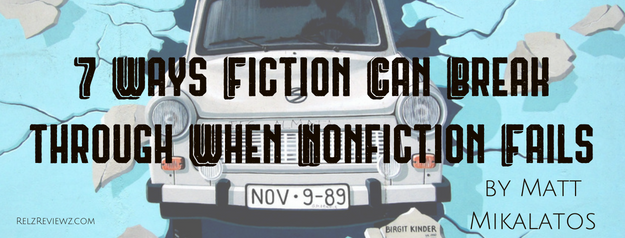
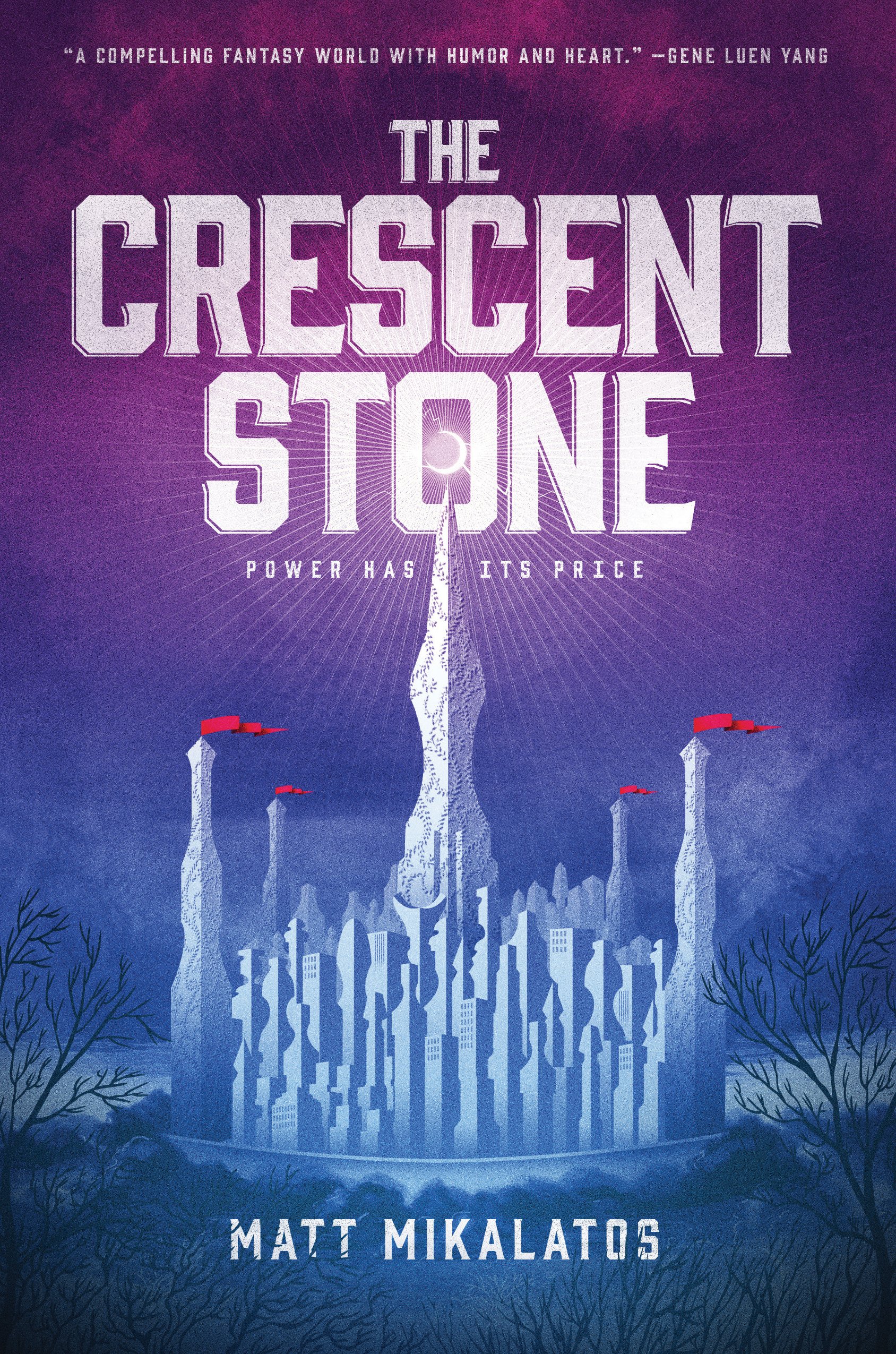
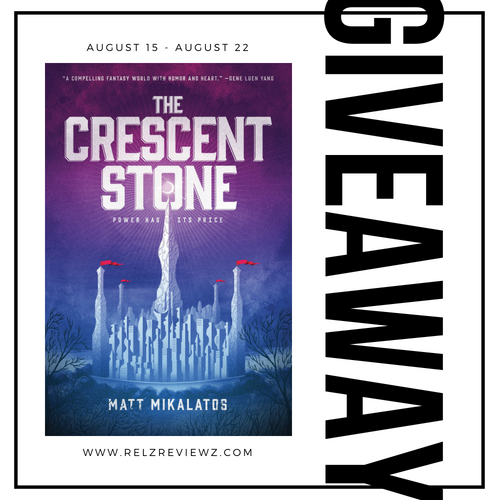
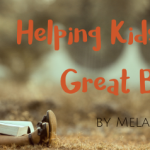
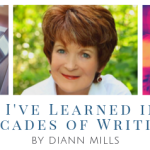

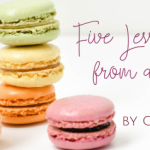
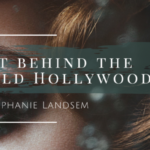
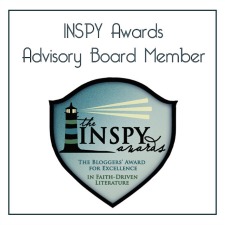




August 18, 2018 at 12:43 am
Fiction not only allows me to travel around the world or through time, but also opens my mind and heart to new cultures and foreign people. I get a better understanding of where these people are coming from so I gain empathy and compassion for their choices in life.
August 18, 2018 at 11:32 am
I am a reader of fiction. It opens my mind to different ideas in ways that nonfiction cannot do, as Matt says in his essay. Jesus told stories as parables that taught people what He wanted them to know. It is a very effective method for both teaching and learning.
August 20, 2018 at 12:50 pm
Fiction helps me to see things from a new perspective.